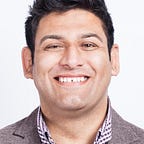WHAT IS SPECIALIZED KNOWLEDGE? HERE IS A QUOTE FROM HENRY FORD THAT MAY EXPLAIN!
There are two kinds of knowledge. One is general, the other is specialized. General knowledge, no matter how great in quantity or variety it may be, is of but little use in the accumulation of money. The faculties of the great universities possess, in the aggregate, practically every form of general knowledge known to civilization. Most of the professors have but little or no money. They specialize on teaching knowledge, but they do not specialize on the organization, or the use of knowledge.
KNOWLEDGE will not attract money, unless it is organized, and intelligently directed, through practical PLANS OF ACTION, to the DEFINITE END of accumulation of money. Lack of understanding of this fact has been the source of confusion to millions of people who falsely believe that “knowledge is power.” It is nothing of the sort! Knowledge is only potential power. It becomes power only when, and if, it is organized into definite plans of action, and directed to a definite end.
This “missing link” in all systems of education known to civilization today, may be found in the failure of educational institutions to teach their students HOW TO ORGANIZE AND USE KNOWLEDGE AFTER THEY ACQUIRE IT.
Many people make the mistake of assuming that, because Henry Ford had but little “schooling,” he is not a man of “education.” Those who make this mistake do not know Henry Ford, nor do they understand the real meaning of the word “educate.” That word is derived from the Latin word “educo,” meaning to educe, to draw out, to DEVELOP FROM WITHIN.
An educated man is not, necessarily, one who has an abundance of general or specialized knowledge. An educated man is one who has so developed the faculties of his mind that he may acquire anything he wants, or its equivalent, without violating the rights of others. Henry Ford comes well within the meaning of this definition.
During the world war, a Chicago newspaper published certain editorials in which, among other statements, Henry Ford was called “an ignorant pacifist.” Mr. Ford objected to the statements and brought suit against the paper for libelling him. When the suit was tried in the Courts, the attorneys for the paper pleaded justification, and placed Mr. Ford, himself, on the witness stand, for the purpose of proving to the jury that he was ignorant. The attorneys asked Mr. Ford a great variety of questions, all of them intended to prove, by his own evidence, that, while he might possess considerable specialized knowledge pertaining to the manufacture of automobiles, he was, in the main, ignorant.
Mr. Ford was replied with such questions as the following:
“Who was Benedict Arnold?” and “How many soldiers did the British send over to America to put down the Rebellion of 1776?” In answer to the last question, Mr. Ford replied, “I do not know the exact number of soldiers the British sent over, but I have heard that it was a considerably larger number than ever went back.”
Finally, Mr. Ford became tired of this line of questioning, and in reply to a particularly offensive question, he leaned over, pointed his finger at the lawyer who had asked the question, and said, “If I should really WANT to answer the foolish question you have just asked, or any of the other questions you have been asking me, let me remind you that I have a row of electric push-buttons on my desk, and by pushing the right button, I can summon to my aid men who can answer ANY question I desire to ask concerning the business to which I am devoting most of my efforts. Now, will you kindly tell me, WHY I should clutter up my mind with general knowledge, for the purpose of being able to answer questions, when I have men around me who can supply any knowledge I require?”
There certainly was good logic to that reply.
That answer floored the lawyer. Every person in the courtroom realized it was the answer, not of an ignorant man, but of a man of EDUCATION. Any man is educated who knows where to get knowledge when he needs it, and how to organize that knowledge into definite plans of action. Through the assistance of his “Master Mind” group, Henry Ford had at his command all the specialized knowledge he needed to enable him to become one of the wealthiest men in America. It was not essential that he have this knowledge in his own mind. Surely no person who has sufficient inclination and intelligence.
So, as you can see I like to network with people and establish a business relationship. A mastermind group that share ideas and business opportunities. My saying is who you know and not what you know.
